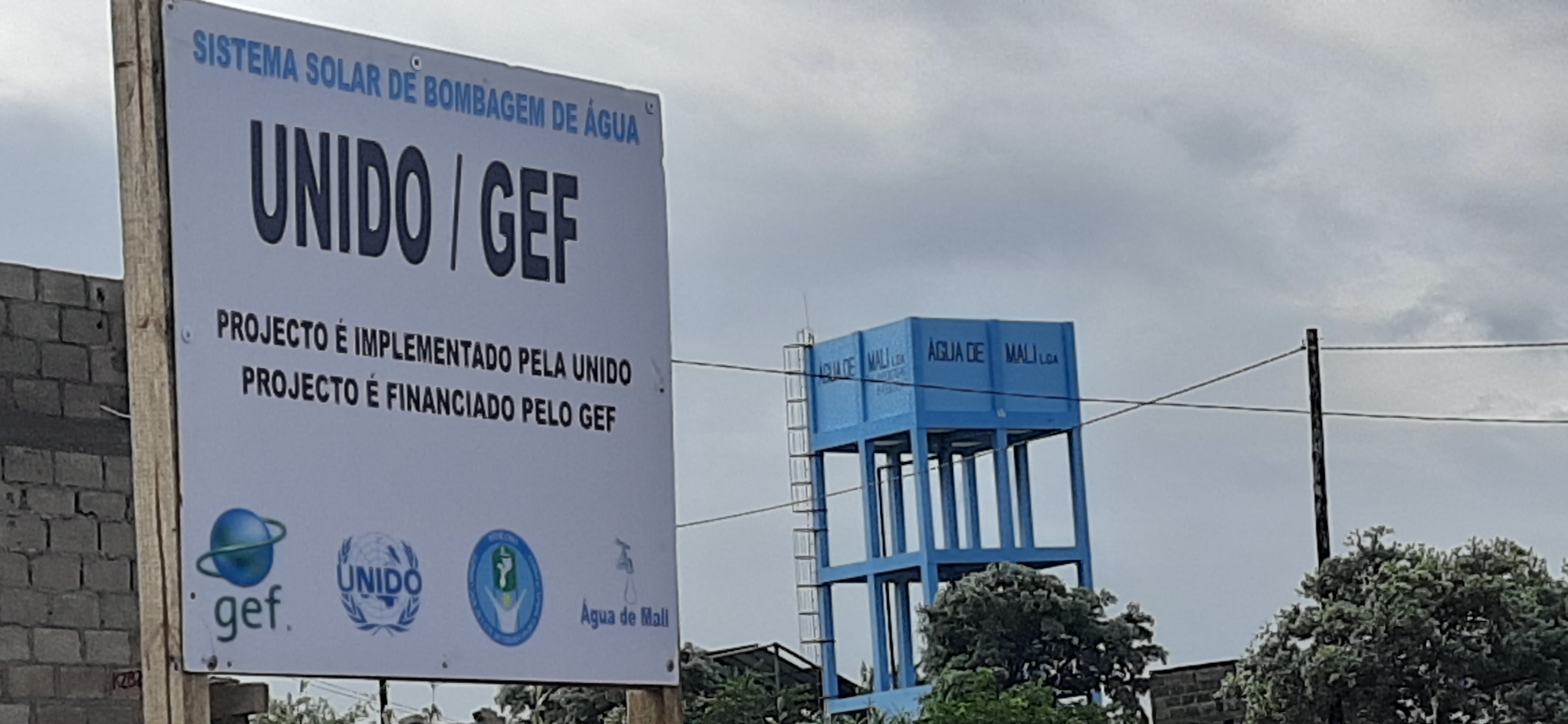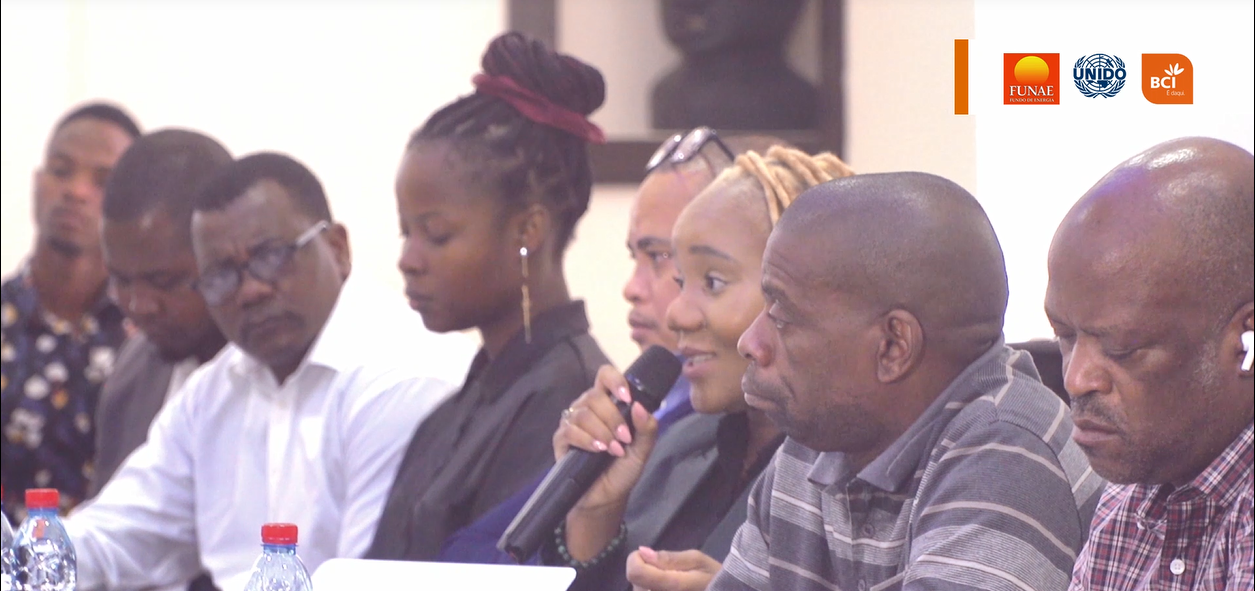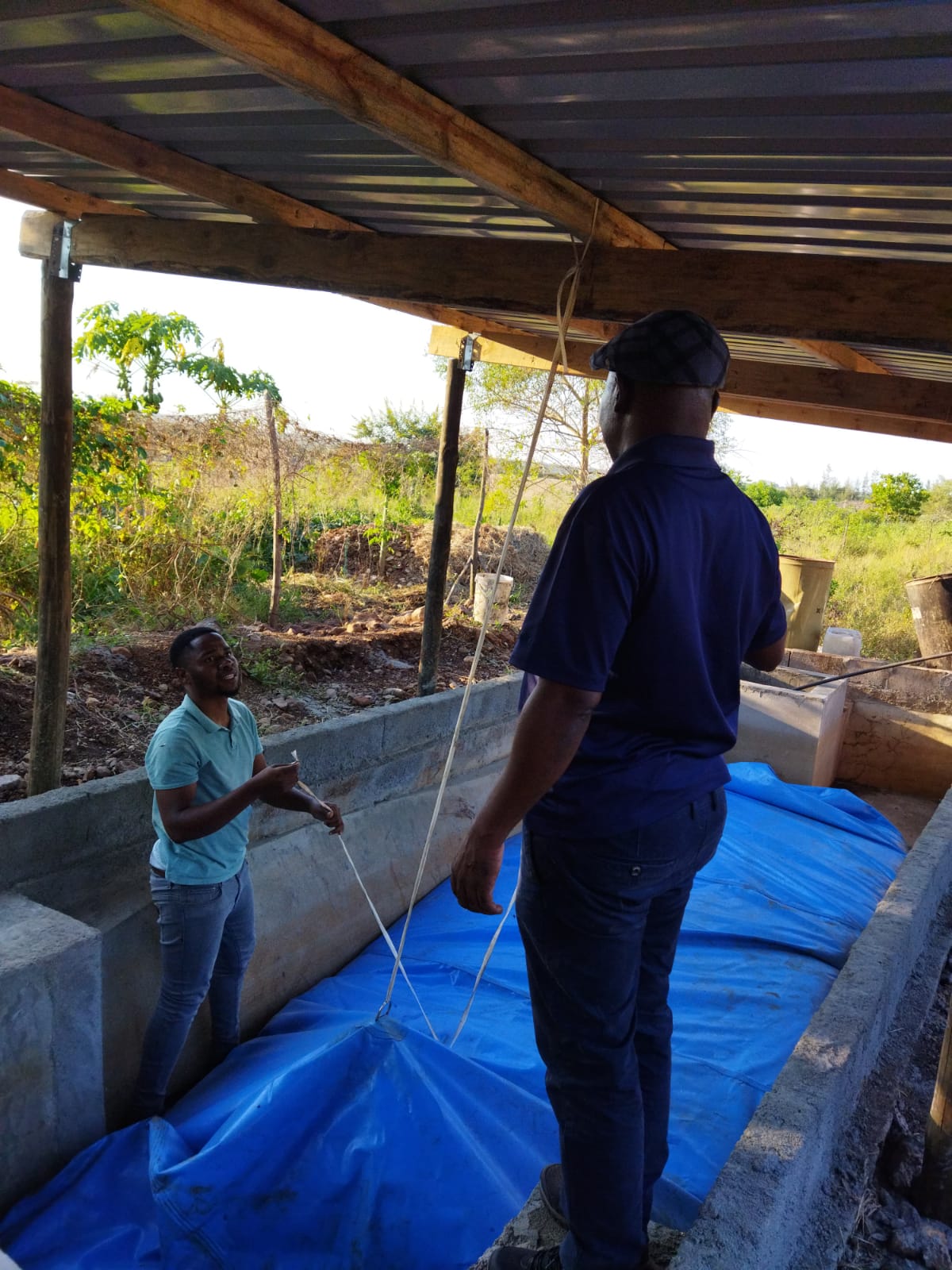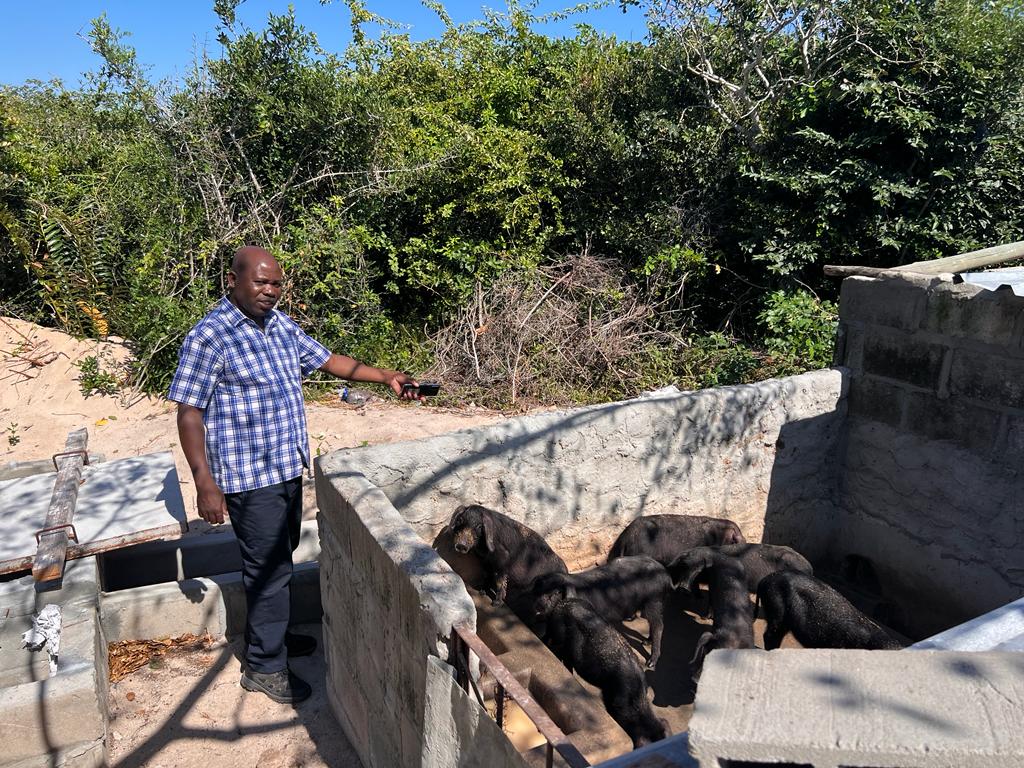
According to Electricidade de Moçambique (EDM)”- state-owned energy company which deals with the generation, transmission, distribution and sale of electricity, in 2018 the country's electrification rate using energy from the national grid stood at 31%. This means that the country will have to ensure the remaining coverage over the next seven years. On the other hand, the reported statistical access may not be reflected at end-user level, since poverty is also an impediment to accessing energy, even where it is already available.
In the past decade Renewable energy increasingly became a viable option for increasing access to energy in many places, particularly in rural Mozambique, and for promoting productive uses in the agricultural sector.
“Given that UNIDO's mandate is restricted to technical-normative cooperation actions, we have been promoting initiatives in line with the implementation of our mandate, which is to promote inclusive and sustainable industrialization”. –Mr. Jaime Comiche, UNIDO’s representative in Mozambique
Here are UNIDO’s 7 interventions in the promotion of SDG 7 “ in Mozambique;
1. Implementation and demonstration of mini-hydro power plants in the provinces of Niassa and Zambézia with a total capacity of 3.5MW (2012)
2. Cleaner Production and Resource Efficiency project (2012-16), with a focus on decarbonization and efficiency of energy use in production units in the hotel and hospitality value chain.
3. Implementation of the Towards sustainable energy for all in Mozambique (TSE4ALL-M) project: promoting the market-based dissemination of integrated renewable energy systems for productive uses in rural areas”, which seeks among other results, to demonstrate the technical and commercial viability of renewable energy systems in the productive sector, including agriculture and the agri-food industry
4. Promoting technical and regulatory support to government, business or producer associations and academia, enabling access to knowledge, technology and financing appropriate to achieving SDG7, with special emphasis on access to sustainable energy for productive purposes.
5. Adapt, test and demonstrate technological or regulatory solutions for access to energy for productive purposes, or energy efficiency, so that they can be adopted and replicated in the country.
6. Supporting national institutions to defend the interests of the national and sectoral development agenda in global forums, for example: UNIDO in Mozambique facilitated the decisive steps to insert in the 'Maputo Declaration, of the Energy Ministers of the A.U. (05 November 2010)', the proposal to submit to the UN GA, the adoption of the year 2012 as the 'International Year of Universal Access to Energy';
7. Between 2012 and 2013, UNIDO led, on behalf of the UN, the efforts for the Government of Mozambique to formalize adherence to the Sustainable Energy for All (SE4ALL) mechanism.
Derived from an interview with UNIDO's representative, Mr. Jaime Comiche conducted by RTP Africa. Watch the full interview HERE

BCI-SUPER Dissemination Workshop on "SME Finance and the BCI-SUPER Credit Line: Preparation of Bankable Projects" organized by UNIDO in partnership with BCI and FUNAE aimed at building the capacity of participants from financial institutions involved in the technical or financial evaluation of project proposals to implement integrated renewable energy systems in rural areas.
Here are the key takeaways from the workshop;
1.Project developers need guidance for the installation of systems as well as quality standards according to the technology used;
2.Specific fiscal incentives need to be in place to promote international partnerships and encourage the importing of renewable energy equipment from global manufacturers;
3.Targeted interventions to build capacity and sensitize stakeholders on the relevance and usefulness of RE technologies are still much needed;
4.SMEs need to improve their financial literacy to understand the benefits of the formal sector, in particular by eliminating misconceptions about tax and financial compliance;
5.All stakeholders throughout the life cycle of the financial instrument should be at the same level of understanding and able to use the same approach during project preparation, appraisal and reporting;
6.The technical capacity of renewable energy Technology and Service providers need to be strengthened in order to deliver functional and robust systems;
7.The role of renewable energy technology and service providers should be strengthened, enabling them to design ambitious, innovative and impactful interventions. Risk mitigation mechanisms should be made available to this specific group to facilitate access to finance, technologies and know-how;
8.The market needs additional innovative financial mechanisms, combining different types of funds and different skills to provide affordable and attractive products to the market;
9.Most projects use solar photovoltaic technology. While this is positive and relevant, the participation of SMEs in energy production systems from other sources, including Organic waste (demand and supply) is comparatively lower;
10.Local development of relevant solutions (in particular W2E-Biogas systems) should be a priority to reduce costs and increase market confidence in renewable energy systems, which will then be supplied and maintained locally;
11.More social enterprises need to act as honest brokers between communities and technology providers, cultivate new social relationships and encourage communities to adopt and use cleaner energy systems. The combination of social enterprises and Renewable Energy providers can catalyze change and promote sustainable economic and social development.

Biogas is a form of renewable energy that depends on microorganisms that converts fermentable organic matter into a combustible gas and matured organic manure. It is a by-product of the anaerobic decomposition of organic matter including vegetable and animal waste, organic waste from industrial processes (from abattoirs, food canning, fruit juice, and diary production), biowaste from households, wastewater and agricultural crops.
According the Ministry of Energy, Mozambique is endowed with vast biomass resources for electricity generation including residues from more than 1.7 million hectares of forest plantation, industrial and agro industrial waste, waste materials from manufacturing industries of wood and plant materials, and waste from Sugar cane foliage derived from a total plantation area of more than 40.000 hectares
The enormous resources notwithstanding, Mozambique continues to grapple with challenges as regards to the adaptation of biogas technology.
TSE4ALLM interacted with Prof. Antonio Cumbane, a renown biogas technology supplier and founder of Engenharia de Processos Ambiente, Consultoria e Servicos (EPACS) Lda and here is what he had to say about biogas technology development in Mozambique
TSE4ALLM : Briefly talk about biogas technology application in Mozambique
A.C: Biogas research and application is still very scarce in Mozambique despite the existence of abundant animal and plant waste and also in urban areas with plenty of food waste which can be utilized as feed stock for the generation of biogas.
TSE4ALLM : Why are rural areas slow in taking on biogas
A.C: Our communities are not aware of the application of the technology. one of the major challenges is the segregation of waste, when you segregate the waste then you increase the value of it to be used as feed stock. The challenge especially in rural areas is how to enable communities set aside feed stock without mixing it with sand / soil once mixed with soil, it loses value.
TSE4ALLM : What are the opportunities for biogas technology in Mozambique?
A.C: There are a lot of opportunities for the development of biogas technology in Mozambique given the fact that Mozambique’s economy predominantly depends on Agriculture where a lot of waste is produced through animals (cows, pigs, etc) and plants.
TSE4ALLM : Which feed stock is most suitable for biogas technology in Mozambique?
A.C: The most convenient source of feedstock is the swine since its grown in a more confined environment and we can get 100% of its waste unlike other animals that keep moving from one place to another while grazing. For cow manure, during the day they go out and come back to a confined state, this is a bit challenging to obtain considerable manure for the feedstock. We also have plant waste e.g. from vegetables, sugarcane. However, the challenge is in the lack of competent industries to process this waste

TSE4ALLM : What are the pre-requisites for choosing a biogas plant?
A.C: In the first place, you need to consider the feedstock needed for the plant and the quantity of the same, how much is available? then consider the design of the plant
TSE4ALLM : How can biogas technology be made accessible to rural communities?
A.C: In most cases equipment needed for the biogas technology is imported and the cost are high but this does not mean that equipment cannot be made locally to suit the local needs especially in rural areas. Adaptation of technology is done for example for filtering bottles can be adapted for the purpose of ensuring that gas can come in and out where by water can be separated from the gas, cotton can also be used to filter the water. A mixture of iron and coal can be used. It not needed to import everything. Local materials can be utilized
TSE4ALLM : What are the Social-economic benefits of biogas technology?
A.C: Biogas can improve the wellbeing of the communities because it is an environmentally friendly technology and promotes a clean cooking environment. Economically, its essential because it can reduce the cost of energy used because it can also be converted to electricity.
TSE4ALLM : How can we ensure effective planning and implementation of biogas projects in Mozambique?
A.C: We need to have all stakeholders involved; people trained for the maintenance. Maintenance is a big challenge, you cannot just handover the project to anyone. There is need to train people who will manage the day-to-day operation of the technology. It is always important to keep in touch with the experts to inform of any problems detected along the way.
Awareness raising on the use and benefits is the solution to encouraging communities to adapt renewable technology
Monitoring the feed is also necessarily to prevent any infiltration from the sand. The sand can block the gas in biodigesters. It is important that the feedstock is cleaned up. The amount of organics in the gas can have an influence on the quality.
TSE4ALLM : How biodigester cleaning done?
A.C: There is cleaning up of the biodigester and the cleaning up of the feedstock. For the feedstock, ensure that the communities adopt cemented kraals and clean up the waste in case of any leakages. For the biodigester, it is important to clean both the inlet and outlet.
TSE4ALLM : What is the future of biogas technology in Mozambique?
A.C: There is need for policies that promote the technology. The government needs to promote the technology but the private sector needs to come on board for the massification of the technology.
Awareness rising among communities needs to be done regarding the advantages and application of the biogas technology

According to the Global Water Report, as of July 2020, water supply services coverage in Mozambique was at 56% with a significant disparity between urban and rural water service coverage. Whereas 84% of the urban areas have access to water supply services, only 40% in the rural areas have been covered by the services. The country thus trails behind SDG 6 “Ensure access to water and sanitation for all”
Despite the considerable progress made over the last 20 years, slow water services coverage levels have been registered due to rapid population growth from 13.6 million people in 1990 to 31.2 million in 2020 and high urbanization rates. The Government of Mozambique estimates that at least $4.2 billion is needed to achieve the universal water service access goal by 2030.
Insufficient public investment in the sector has resulted in limited public service coverage especially in peri-urban and rural areas. In light of this, small scale water providers emerged to fill the gap and their existence formalized by decree 51/2015 approved by the GoM. Over time these family owned businesses have grown in number and size with expansion to small towns and rural areas providing water for drinking, hygiene, commercial and productive activities. According to USAID, small water service providers accounted for 22.7% of water supply in urban areas, equivalent to 1.76 million people as of 2018
The unprecedented role of the private water supplier notwithstanding, the sector grapples with high electricity costs following the 2018 tariff increase by the national electricity entity-EDM. It is estimated that electricity costs account for 35% to 65% of the operational costs of the water services providers. In 2021, EDM increased the tariff to 10% in a bid to improve the financial sustainability of its operations. Besides, high electricity costs, private water service providers endure repeated and sometimes extended electricity services disruptions which leads to difficulty in providing for its customers. This is coupled with poor power quality leading to premature water pump motor failure whose replacement is very costly.
In consideration of the above challenges and the need or improved water supply services coverage, the Mozambican Private Water service providers association resorted to the adoption solar powered systems as a viable alternative. In January 2023 the association embarked on the installation of solar powered systems for each of the identified 9 Private Water Providers located multiple locations in Maputo province amounting to 63 Kw of combined capacity.
The adaptation of solar systems comes with enormous benefits to the environment and the private service providers as it will lead to reductions on GHG emission for those currently using diesel generators. The providers will become less subjected to unpredictable fuel variations that affect their profitability.
“By relying on solar energy as the primary source of energy to operate their systems, FPAs will be less vulnerable to the effects of frequent power shortages and fluctuations that currently lead to poor customer services and equipment damages”--- Mr. Adriano Chirute, President, AFORAMO

Quinta Irini, an agricultural and agro-processing initiative located in Mafuiane engages in a wide range of agricultural activities including agro-processing agriculture, fungal beekeeping, mushroom production, and animal husbandry. The small holder farm largely relies on firewood and charcoal as the largest source of energy used in the process of pasteurizing the substrate for the production of mushrooms. Food processing at the farm consumes large amounts of firewood per day for cooking over 200-litres drums.
In January 2023 the Quinta Irini small holder farm with support from UNIDO and in Partnership with the Ministry of Agriculture embarked on the transition from using environmentally detrimental sources of energy to the use of solar powered systems, thus increased production. The ongoing energy transition was made possible by the installation of 4 solar powered systems including; a Solar grinder, a solar fruit and vegetable dryer, a solar powered irrigation system, and a biodigester.
Solar powered grinder
In the past the farm solely depended a small electric grinder for processing bananas, okra, and cereals (rice, sorghum, and millet) in small quantities using electric power worth 4500 to 5000 meticais per month. Acquisition of the solar powered grinder will not only reduce electricity costs but also the use of firewood and time spent by workers during the process of preparation and control of the fire to process edible flour from different types of dried grains such as corn, millet, sorghum, wheat, barley, rice, soybeans, pepper, or other agricultural products. The grinder will be capable of processing 40kg/h of fine flour depending on the moisture of the grains, and 200kg/h for more coarse flours used for animal feeds production.
Solar dryer for fruits and vegetables
“It used to take about six days to dry fruit and four days to dry vegetables. On days with little sun shine, depending on the length of the days with clouds or rain, we ended up losing the produce, especially the fruit, which has a poor-quality level”. --- Malisa, Smallholder farmer on the benefits of the solar fruit and vegetable dryer
The total quantity of fresh fruit that can be dried simultaneously in all drying chambers using the solar-powered dryer is 90kg per day. This means a reduction in time, an improvement in efficiency and a reduction in the loss of vegetables, fruits and tea leaves.
Solar powered irrigation system
In July 2022 a borehole was drilled for water supply with an estimated flow volume of 4m3/h which is sufficient for irrigation and water supply to the surrounding communities as well as for consumption. In order to guarantee the storage of the precious liquid, the construction of a 10 cubic meter high water storage tower is in progress and a PS2 600 solar pump installed to facilitate the pumping of water for irrigating the 10 acres farm.
Biodigester
To reduce the use of firewood and the time spent by the workers during the process of preparation and control of the fire, the construction and feeding of a biodigester a 20m3 is in an advanced stage. Besides, identification of sites for acquisition of goat, bovine and pig manure to ensure the continuous feeding of the equipment.

